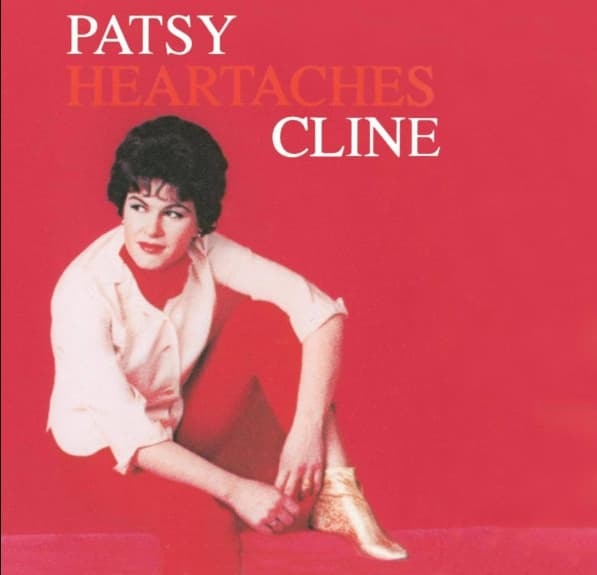
“Heartaches”: A Melancholy Echo of Unrequited Love and Lingering Absence
Ah, Patsy Cline. Just the name itself conjures up images of smoky honky-tonks, shimmering sequins, and a voice that could crack a heart wide open. Tonight, we’re taking a journey back in time, to an era when country music was raw, honest, and profoundly moving. We’re not revisiting one of her quintessential hits, the ones that immediately spring to mind like “Crazy” or “I Fall to Pieces.” No, tonight we’re delving into a lesser-known gem, a song that, while perhaps not reaching the stratospheric chart heights of its more famous siblings, still resonates with a quiet, persistent ache: “Heartaches.”
Released in 1962 as a single, “Heartaches” found its way onto the charts, though not with the same explosive force as some of Cline’s other recordings. It peaked at number 73 on the Billboard Hot 100 and number 10 on the Hot Country Singles chart. While these positions might seem modest compared to her string of Top 10 hits, it’s important to remember the context. Patsy Cline was already a titan in the music world, her powerful vocals and unique blend of country, pop, and blues firmly establishing her as a legend. By 1962, she had already given us “I Fall to Pieces” and “Crazy,” both monumental successes that cemented her status. “Heartaches” arrived at a time when her star was shining brightly, and while it didn’t eclipse her prior achievements, it added another nuanced brushstroke to her already rich musical tapestry.
The story behind “Heartaches” is, in some ways, as poignant as the song itself. Originally penned by Al Hoffman and John Klenner in 1931, it had been a standard for decades, covered by various artists in the jazz and pop realms. But when Patsy Cline took hold of it, she infused it with a melancholic depth that was uniquely her own. It’s a testament to her interpretative genius that she could take a song from an entirely different era and genre and make it sound like it was written just for her, just for her voice. This wasn’t a song she penned herself, but she owned it, breathing into it the very essence of her experiences and her unparalleled ability to convey deep emotion.
The meaning of “Heartaches” is laid bare from the very first notes – it is a lament, a mournful reflection on love lost and the enduring pain of separation. The lyrics speak of a love that has gone, leaving behind only the echo of “heartaches, heartaches, my love for you brings nothing but heartaches.” It’s a feeling many of us, especially as we’ve walked through more seasons of life, can understand intimately. That particular kind of ache, not a sharp, sudden pain, but a dull, persistent throb that lingers in the quiet moments, a constant reminder of what once was. It’s about unrequited love, or perhaps a love that was once reciprocated but has since withered, leaving one party still clinging to the remnants of affection. The song doesn’t offer solutions or happy endings; it simply acknowledges the profound sorrow of a heart burdened by a love that is no longer there, or never truly was.
What makes “Heartaches” so compelling, particularly for older listeners, is its raw honesty and its resonant portrayal of human vulnerability. Patsy Cline’s delivery is masterful, her voice weaving a tapestry of longing and regret. There’s a particular vulnerability in her voice as she sings, a quality that makes you feel as though she’s sharing her innermost thoughts, her deepest wounds. It’s not a performance; it’s an outpouring. This authenticity is a hallmark of Cline’s artistry, and it’s why her music continues to move generations.
When you listen to “Heartaches,” you can almost feel the weight of unspoken words, the pang of memory, the quiet despair of a love that has left an indelible mark. It’s a song that doesn’t just describe sadness; it embodies it. It reminds us that even after the tears have dried and the initial shock has faded, the heart often retains a lingering ache, a testament to the profound impact of connection and the equally profound pain of its absence. For those of us who have lived long enough to experience the ebb and flow of love, its joyful arrivals and its sorrowful departures, “Heartaches” serves as a poignant reminder of the enduring power of human emotion. It’s a song to be savored, to be felt, and to be remembered for its quiet strength and its timeless resonance.